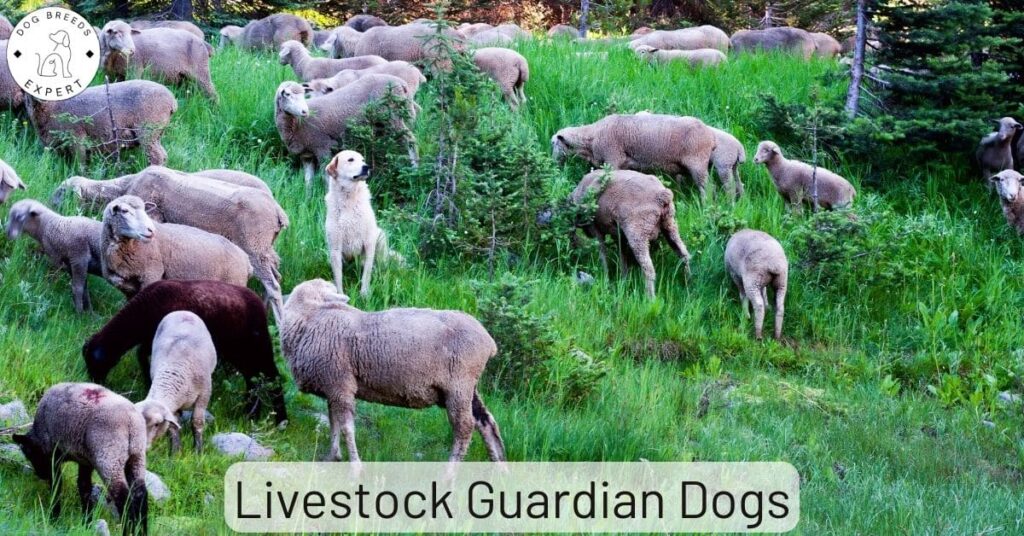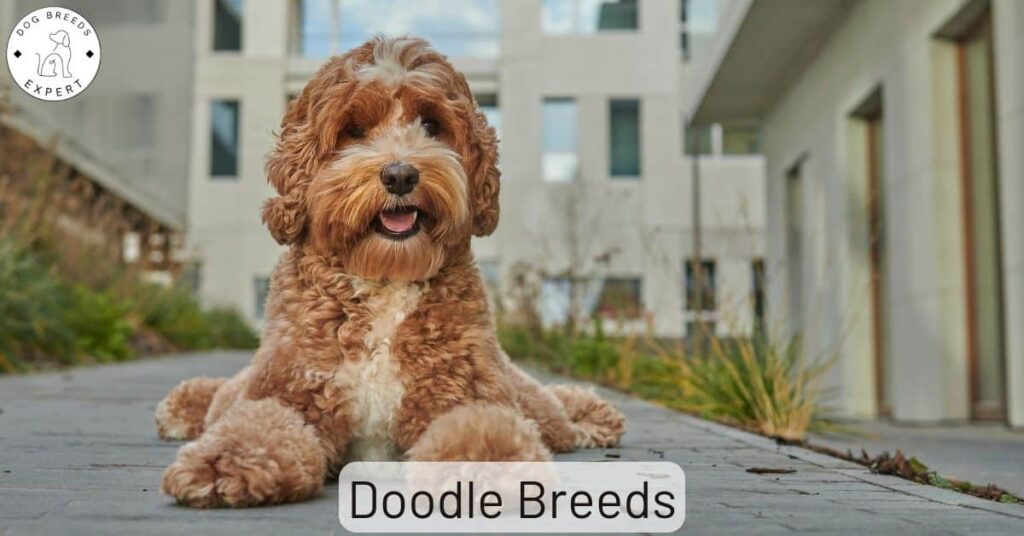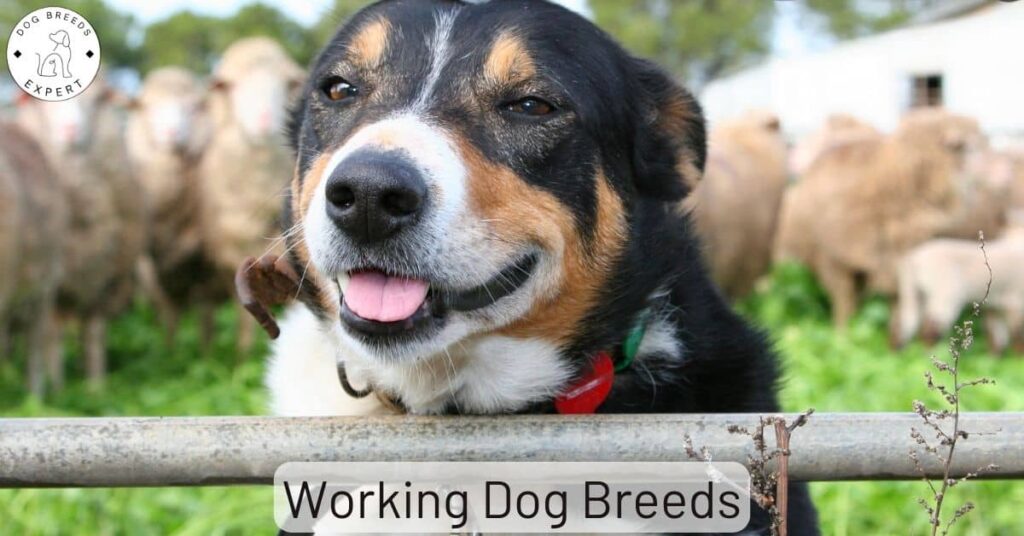Livestock Guardian Dogs – From ancient times, shepherds needed help guarding their flocks from wolves, bears, big cats and other roaming dogs. Enter the livestock guardian dog, who can look like a fluffy overgrown puppy with curly tails and thick coats that grow to medium length or longer. Don’t let appearances fool you, though. These dogs are strong, powerful and independent thinkers.
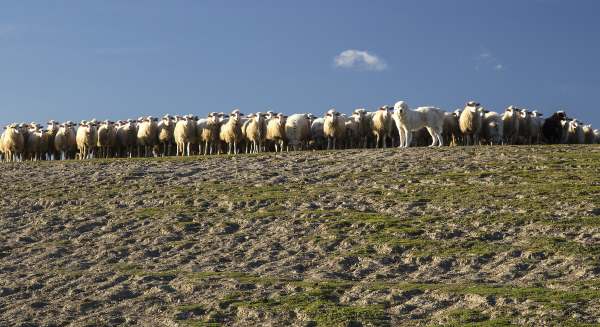
What’s in a Name
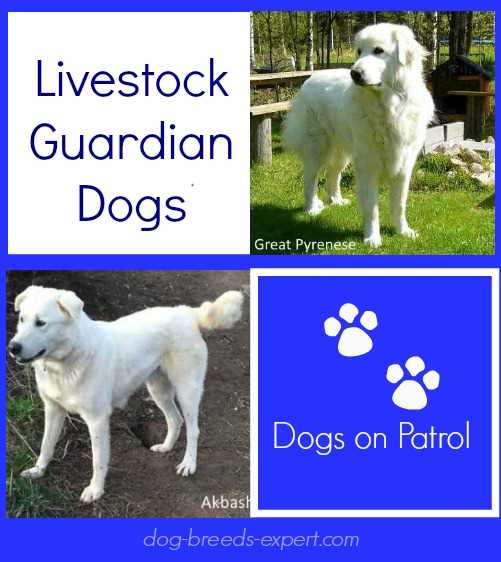
Are they called Livestock Guardian Dogs or Livestock Protection Dogs?
Organizations and people normally prefer one name over the other, but both names refer to the same group of dogs that help farmers and ranchers protect their livestock and their farms from predators and even humans.
You will also see different names used in their official breed name.
They have gone by different names from sheepdog and shepherd to mastiff and Ovcharka (the Russian word for “shepherd dog.”)
If you are looking to make one of these dogs a companion, it is possible, but it also takes hard work. Traditionally, they were never meant to be a family pet.
They won’t do well in an apartment and city living is likely to put undue stress on them. They are at their best in rural areas, on farms and ranches where they have plenty of room to roam, exercise and patrol.
Good fences are a must when owning livestock guardian dogs and a sign that is visible stating, “Livestock Guard Dog at Work.” Is extremely helpful.
Characteristics of Livestock Guardian Dogs
- Independent
- Aloof with Strangers
- Dominant
- Low prey drive
- Highly protective
- Barkers: They bark and patrol and can be a nuisance
- Prefer to roam or wander
- Slow to mature (many do not reach adulthood until age 2 or older)
- Most share certain health problems such as hip and elbow dysplasia, osteosarcoma and other cancers, bloat, and eye problems
- Many have white coats
What Livestock Guardian Dogs Are Not
There is sometimes a misconception about the role these dogs perform.
To see the human shepherd moving his flocks and the livestock guardian dogs walking along side or at the rear, one could make the assumption that they are also herding the flocks.
While a LGD may put himself between a predator and his flock, he is actually guarding them, not herding them.
Livestock actually trust LGDs more so than they would put trust in herding dogs because they know that the LDG is protecting them, whereas herding breeds work by nipping, biting, and even jumping on the livestock!
What does it take to own one of these dogs?
- Experience with working and training strong minded dogs. These dogs are not good for first time dog owners.
- Socialization to people and other pets
- Preferably a rural setting
LGD as a Farm Dog?
If he is to be a farm dog,there are a couple of additional recommendations.
Find a secure place in a barn or shelter near his future charges – he should be fine outdoors; Provide toys and chews. Take him with you while doing chores.
Supervise him around the livestock. Get him used to people and car rides (he will need to be taken to the vet periodically). Keep him in a securely fenced area.
LDG as Companion?
If he is to be a Companion: Treat him as you would any other dog. You can crate train him and leave him for short periods of time, but if they are left for long periods, they can become destructive.
You will need a securely fenced yard for him to run and exercise. Remember they will need exercise, training, and socialization. Puppy classes are good options for these dogs.
As a slow to mature dog, he will need lots of supervision and training over a long period of time.
Who are the Livestock Guardian Dogs?
Aidi (or Berber Dog)
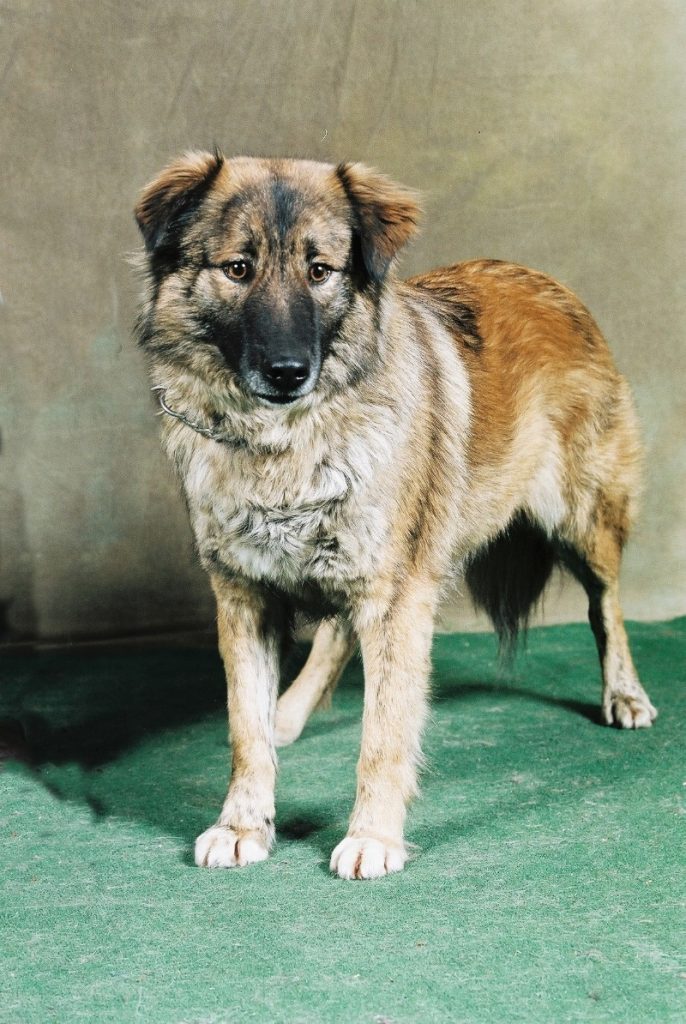
Country of Origin; Morocco, Atlas Mountains
Color; White with Black markings, some Brown markings.
Size; 22-27 inches, up to 60lbs.
Akbash Dog
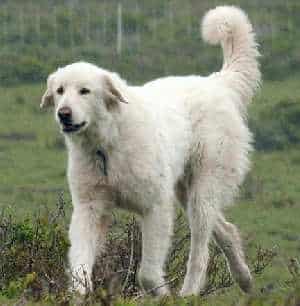
Country of Origin: Turkey
Color: White, cream or biscuit
Size: Males: 90-130 pounds, Females 75-100 pounds
Anatolian Shepherd Dog (also called Anatolian, ASD, Coban Kopegi, Toli)
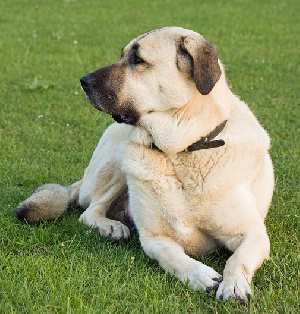
Country of Origin: Turkey
Color: All colors, some with black masks
Size: Males: 110-145 pounds, Females: 85-120 pounds
Traditionally regarded as a separate breed to the Kangal Dog, but several Kennel Clubs have now stated that they are the same breed, and do not recognize the Anatolian Shepherd as being different.
Armenian Gampr
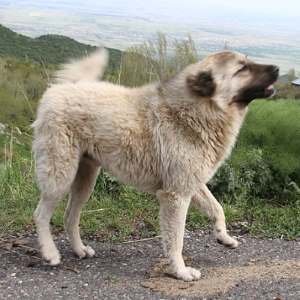
Country of Origin: Armenia
Color: Any color or pattern
Size: Males: Up to 120 pounds, Females: Up to 110 pounds
Caucasian Ovcharka (Caucasian Mountain Dog or Caucasian Shepherd Dog)
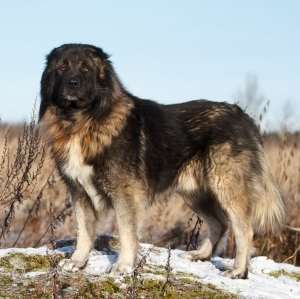
Country of Origin: Russia
Color: Any color except black, blue or liver brown
Size: Both Females and Males: 100-150 pounds
Central Asian Shepherd (Central Asian Ovcharka, Sredneasiatskaia Ovcharka, Middle Asian Ovcharka)
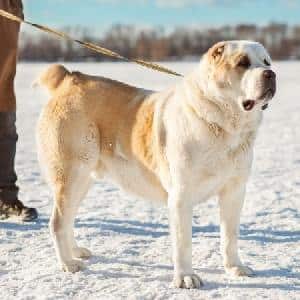
Country of Origin: Central Asia
Color: Any color except blue or brown
Size: Males: 110-145 pounds, Females 88 to 125 pounds
Estrela Mountain Dog (Cão da Serra da Estrela, Estrela, EMD)
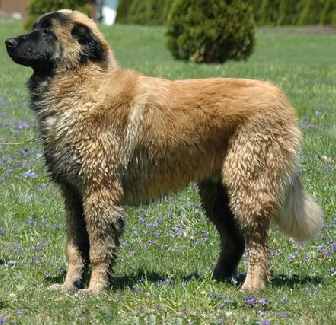
Country of Origin: Portugal
Color: Fawn, yellow, wolf gray, white markings or black shading
Size: Males: 80-115 pounds, Females: 80-95 pounds
Great Pyrenees (Pyr, Pyrenean Mountain Dog, PMD, Chien de Montagne des Pyrenees)
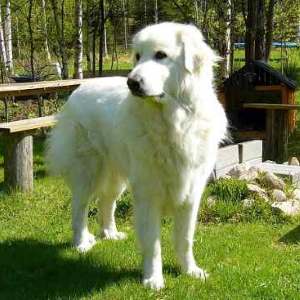
Country of Origin: France
Color: White, with or without markings of badger, gray, tan
Size: Males: 100-140 pounds, Females: 85-110 pounds
Kangal Shepherd (Kangal Kopegi, Sivas Kangal)
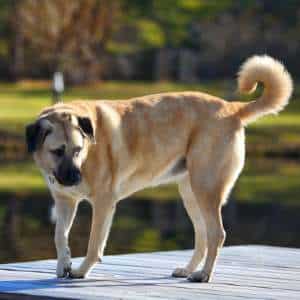
Country of Origin: Turkey
Color: Shades of Gray with black muzzle, mask and ears
Size: Males: 110-145 pounds Females: 90-120 pounds
Karakachan Dog (Bulgarian Shepherd Dog)
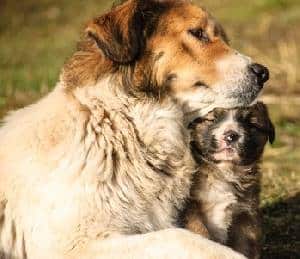
Country of Origin: Bulgaria
Color: Whole colors including white, brindle and stable with or without white markings, bicolored, tricolored
Size: Males: 99-135 pounds Females: 88-125 pounds
Komondor (Kom, mop dog)
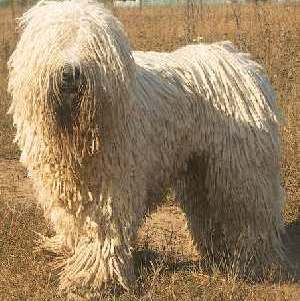
Country of Origin: Hungry
Color: white (dreadlocks)
Size: Males: 100-130 pounds, Females: 89-110 pounds
Kuvasz
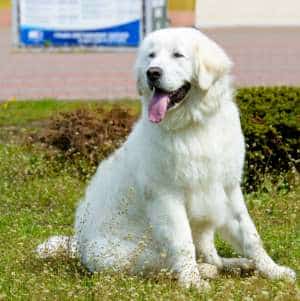
Country of Origin: Hungary
Color: White
Size: Males: 100-115 pounds, Females: 70-90 pounds
Maremma Sheepdog (Abruzzese Sheepdog, Pastore Maremmano, Pastore Abruzzese)
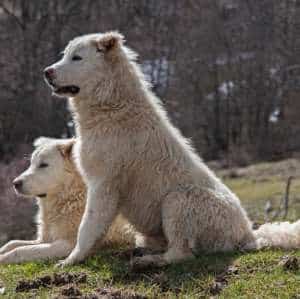
Country of Origin: Italy
Color: White with or without shading in ivory, pale orange or lemon
Size: Males: 77-99 pounds Females: 66-88 pounds
Polish Tatra Sheepdog (Owczarek Podhalanski, Polish Mountain Sheepdog, Tatra)
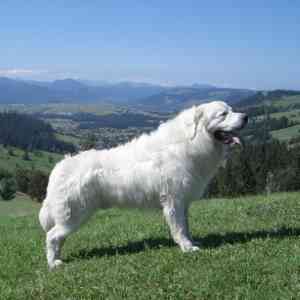
Country of Origin: Poland
Color: White
Size: 80-130 pounds for both Males and Females
Pyrenean Mastiff (Mastín de los Pirineos)
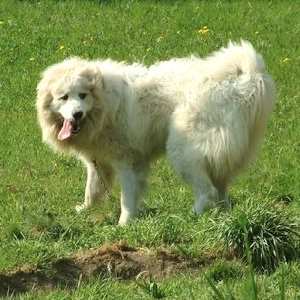
Country of Origin: Spain
Color: White with dark patches and a mask covering eyes and ears
Size: Males and Females: 120-150 pounds
Rafeiro do Alentejo (Portuguese Mastiff)
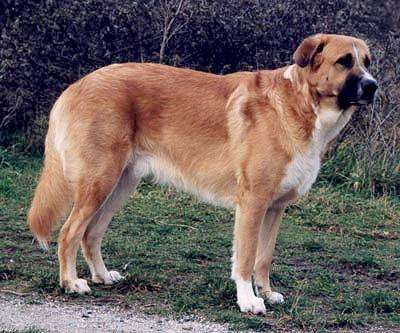
Country of Origin; Portugal
Color; Black, Grey, Red / Russet, with white markings.
Sizes; 100lbs +, 28 inches at the withers.
Šarplaninac (Illyrian Shepherd Dog, Macedonian-Yugoslavian Shepherd Dog, Sharplaninatz)
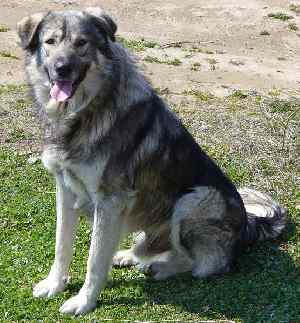
Country of Origin: Macedonia and former Yugoslavia
Color: Solid white, blond, beige, tan, dark brown or gray with sable or agouti patterns
Size: Males: 77-99 pounds, Females: 66-88 pounds
Slovensky Cuvac (Slovakian Chuvach, Slovak Curvac, Slovensky Tchouvatch)
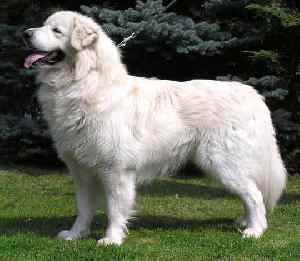
Country of Origin: Slovakia
Color: White
Size: Males: 80-97 pounds, Females: 68-82 pounds
Spanish Mastiff (Mastín Español)
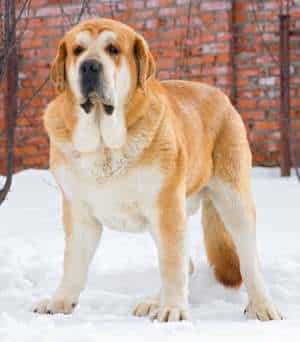
Country of Origin: Spain
Color: All accepted
Size: Up to 220 pounds
Tibetan Mastiff
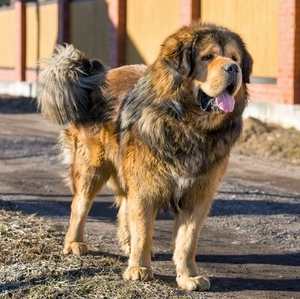
Country of Origin: Tibet
Color: Black, blue-gray, brown with or with out tan markings, light to red gold with or without sabling
Size: Males: 90-150 pounds, Females: 70-120 pounds
Tornjak
(Bosnian and Herzegovinian-Croatian Shepherd Dog)
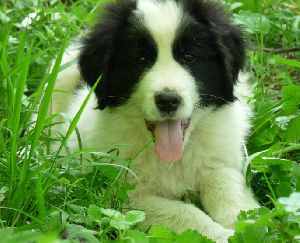
Country of Origin: Croatia, Bosnia, Herzegovina
Color: White with or without patches of other colors
Size: Both Males and Females: 77-120 pounds
We hope you enjoyed our guide to Livestock guardian dogs! Please let us know if you think we have missed a breed, via the “Contact Me” link.

